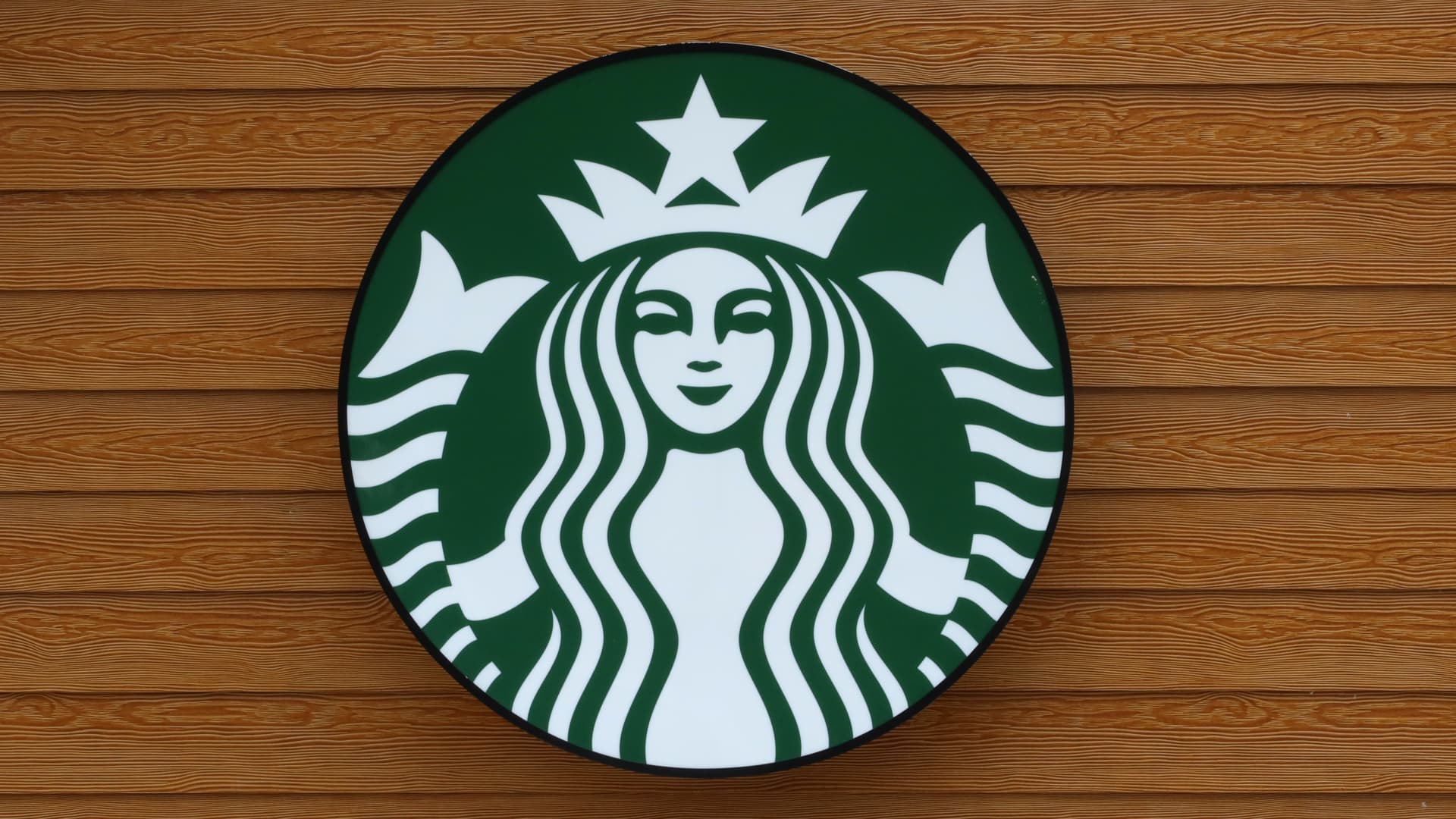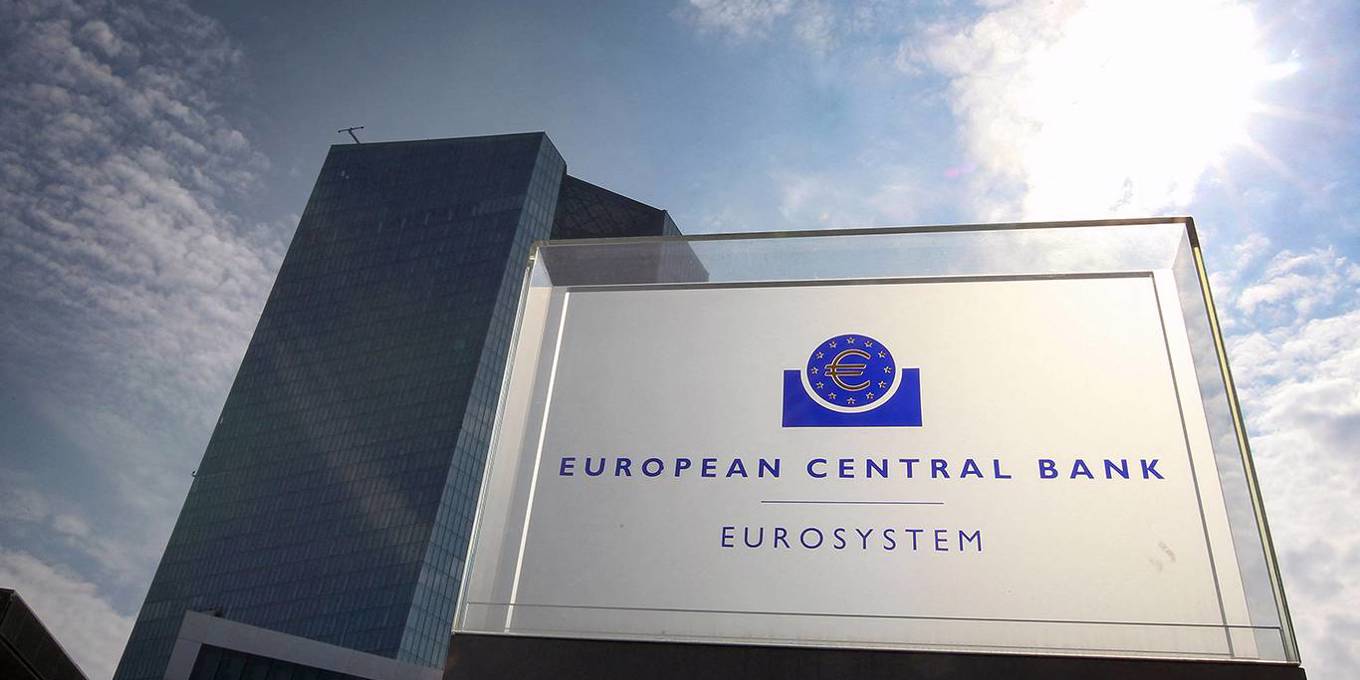“As we create more premium beverages, it becomes more difficult for customers to replicate it at home and we think that helps with the concept of trade down,” Starbucks CFO Rachel Ruggeri told CNBC’s “Squawk Box” on Aug. 3.Gary Hershorn / Contributor / Getty ImagesPersonalized coffees, “prestige” skincare and “elevated” sauces and spreads are just some examples of how companies like Starbucks, Unilever and Kraft Heinz are tilting their focus toward premium products — and consumers appear to be loving it.But why are companies zooming in on their pricier offerings when consumers are feeling the effects of the biggest inflation shock in decades?related investing news
What to expect when Costco reports earnings after the closing bell Thursday”Customer insight is key for consumer businesses as the cost of living squeeze tightens,” Paul Martin, KPMG’s U.K. Head of Retail, told CNBC.”Whilst it’s true that some consumers are having to increasingly turn to value products and watch every penny, it is also the case that other consumers are nervous about the economic outlook but still have money to spend and are in essence trading down to premium products,” Martin said.”For example, swapping meals out for premium meals in. Whilst this group will also look to save money via the value essentials, they won’t be filling the basket solely with them,” he said.’An offering that’s worth paying for’Starbucks reported record customer counts and sales in the last quarter, beating Wall Street expectations. The results appear to reaffirm the view that some customers aren’t trading down or reducing their spending despite the increasing cost of living.Designing bespoke products is key to upping customer engagement even when money is tight, Starbucks CFO Rachel Ruggeri told CNBC’s “Squawk Box” on Aug. 3.”As we create more premium beverages, that’s more difficult for customers to replicate at home and we think that helps with the concept of trade down,” Ruggeri said. “It may mean that maybe a customer doesn’t come as frequently, but we want to ensure that we have reasons for the customers to come into the stores and interact with us.”Giving customers more flexibility also helped to sell more expensive products and pass on higher costs, Ruggeri said. “We’ve been able to do that through our personalization, which is a choice, and what we’ve seen so far is our demand is strong. And that tells us that we have an offering that’s worth paying for,” she said.The focus on premium products isn’t unique to the largest coffee chain in the U.S.Kraft Heinz is getting in on the luxury market with the launch of its HEINZ 57 Collection in July. The “chef-inspired” condiments are “designed to add magic to the culinary experience,” according to the company.This came as the company lifted prices by more than 12% in response to higher transportation, labor and ingredients costs amid rising inflation.
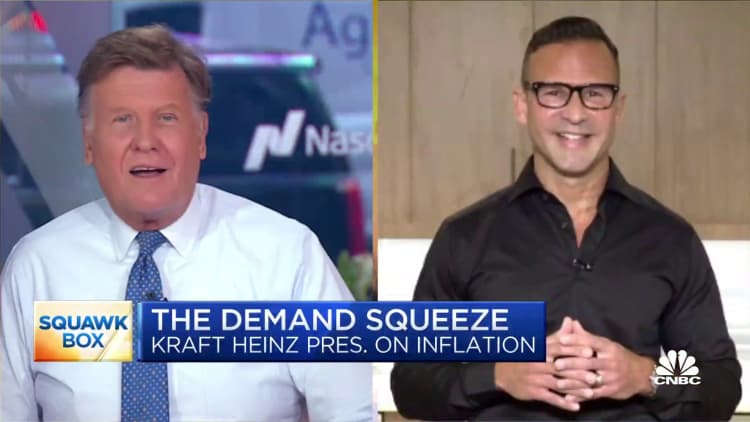 The introduction of more premium products is in addition to redesigns of classic products, according to the company’s U.S. president Carlos Abrams-Rivera.”One focus is how do we optimize formulas to bring in ingredients that are cheaper,” Abrams-Rivera told CNBC’s “Squawk Box” on July 28. “And how do we customize our products to the different consumers so they can access different products at different price points.”Treading a similar path is Mondelez. The company announced in June a deal to acquire organic-focused Clif Bar & Company, while all the company’s 2021 acquisitions — Hu Master Holdings, Lion/Gemstone Topco and Gourmet Food Holdings — were described as “premium” in its second-quarter earnings report.’Value faces a boom and so does premium’Unsurprisingly, consumers are also reliant on cheaper products, which companies are also sensitive to.McDonald’s, for example, attributed some of its growth in the U.S. to its value products in its Q2 2022 earnings report.Other companies are looking to attract both ends of the market by focusing on higher and lower-priced products.Nestle CEO Mark Schneider told investors in the company’s half-year results earnings call that the approach has been used before.”What we’re seeing with the current situation is similar to what happened in previous economic slowdowns and downturns,” Schneider said. “We pay attention to premium products but we also pay attention to affordable products. By covering both ends of this spectrum we’re doing well and we’re serving those needs.”Appealing to the widest possible customer base is key to maintaining and growing profits in the current economic climate, according to KPMG’s Martin.”In this landscape, value faces a boom and so does premium. Supermarkets recognize it, including the discounters, who are expanding their core value ranges, but also beefing up their premium proposition. Their aim is to capture and retain all of the trade-down audiences,” Martin said.Driving desirability and salesUnilever CEO Alan Jope told CNBC’s “Squawk Box” that the company was seeing a mixture of customers trading up and trading down.”The premium ranges in our portfolio are actually doing very well … We are seeing some downtrading – that’s on pack size, where people are moving to more affordable formats,” he said on July 26.In 2014, Unilever launched Prestige, a luxury arm of the conglomerate that now includes Dermalogica, Tatcha and Paula’s Choice.Described as “a string of pearls” by Executive VP and Group CEO Vasiliki Petrou in December, the model relies on “a certain level of scarcity” to drive desirability and sales.So far, it appears to have worked. Beauty & Personal Care grew 7.5% in the last quarter, driven by “strong growth” in Prestige Beauty and Health & Wellbeing, according to the company’s Q2 2022 results announcement.A focus on premium products can also be a more palatable means of tackling inflation costs compared to reducing items or packaging sizes, according to EY global consumer leader Kristina Rogers.”There is a limit to these actions and considering that input costs continue to rise, companies are looking at how to expand the value of their products,” Rogers told CNBC.”The only way to grow is therefore to go the premium and added value route. Companies need to demonstrate the added value of their brands and give consumers a good reason to buy higher-priced products,” Rogers said.”Companies are focusing on increasing the features of their product to extend consumers’ willingness to pay. These features include brand building, higher quality products, sustainability, or health features, to help validate a higher premium to be charged,” she added. .
The introduction of more premium products is in addition to redesigns of classic products, according to the company’s U.S. president Carlos Abrams-Rivera.”One focus is how do we optimize formulas to bring in ingredients that are cheaper,” Abrams-Rivera told CNBC’s “Squawk Box” on July 28. “And how do we customize our products to the different consumers so they can access different products at different price points.”Treading a similar path is Mondelez. The company announced in June a deal to acquire organic-focused Clif Bar & Company, while all the company’s 2021 acquisitions — Hu Master Holdings, Lion/Gemstone Topco and Gourmet Food Holdings — were described as “premium” in its second-quarter earnings report.’Value faces a boom and so does premium’Unsurprisingly, consumers are also reliant on cheaper products, which companies are also sensitive to.McDonald’s, for example, attributed some of its growth in the U.S. to its value products in its Q2 2022 earnings report.Other companies are looking to attract both ends of the market by focusing on higher and lower-priced products.Nestle CEO Mark Schneider told investors in the company’s half-year results earnings call that the approach has been used before.”What we’re seeing with the current situation is similar to what happened in previous economic slowdowns and downturns,” Schneider said. “We pay attention to premium products but we also pay attention to affordable products. By covering both ends of this spectrum we’re doing well and we’re serving those needs.”Appealing to the widest possible customer base is key to maintaining and growing profits in the current economic climate, according to KPMG’s Martin.”In this landscape, value faces a boom and so does premium. Supermarkets recognize it, including the discounters, who are expanding their core value ranges, but also beefing up their premium proposition. Their aim is to capture and retain all of the trade-down audiences,” Martin said.Driving desirability and salesUnilever CEO Alan Jope told CNBC’s “Squawk Box” that the company was seeing a mixture of customers trading up and trading down.”The premium ranges in our portfolio are actually doing very well … We are seeing some downtrading – that’s on pack size, where people are moving to more affordable formats,” he said on July 26.In 2014, Unilever launched Prestige, a luxury arm of the conglomerate that now includes Dermalogica, Tatcha and Paula’s Choice.Described as “a string of pearls” by Executive VP and Group CEO Vasiliki Petrou in December, the model relies on “a certain level of scarcity” to drive desirability and sales.So far, it appears to have worked. Beauty & Personal Care grew 7.5% in the last quarter, driven by “strong growth” in Prestige Beauty and Health & Wellbeing, according to the company’s Q2 2022 results announcement.A focus on premium products can also be a more palatable means of tackling inflation costs compared to reducing items or packaging sizes, according to EY global consumer leader Kristina Rogers.”There is a limit to these actions and considering that input costs continue to rise, companies are looking at how to expand the value of their products,” Rogers told CNBC.”The only way to grow is therefore to go the premium and added value route. Companies need to demonstrate the added value of their brands and give consumers a good reason to buy higher-priced products,” Rogers said.”Companies are focusing on increasing the features of their product to extend consumers’ willingness to pay. These features include brand building, higher quality products, sustainability, or health features, to help validate a higher premium to be charged,” she added. .
Inflation, weak rupee kept economy in red in July: Mint macro tracker
Launched in October 2018, Mint’s macro tracker provides a monthly comprehensive report on the state of the economy, based on trends in 16 high-frequency indicators. For each indicator, the value in each month is assigned a colour-coding (red, amber and green) to denote where it lies relative to the five-year average (worse, in line, or better). As of July, six of the 16 indicators were in green, one in amber, and nine in red—an improvement from six months ago. This was similar to the reading in June. Indicators such as inflation and trade balance remained in the red, while a weak rupee added to the pressure. Here’s a glimpse of how each indicator fared.
Catch all the Business News, Market News, Breaking News Events and Latest News Updates on Live Mint.
Download The Mint News App to get Daily Market Updates.
More
Less
Subscribe to Mint Newsletters * Enter a valid email * Thank you for subscribing to our newsletter.
Topics
.
The End of the EU’s Free Lunch by Hans-Werner Sinn
For many years, the European Central Bank was able to print money to purchase member states’ government debt without having to worry about causing high inflation. But now that stagflationary conditions have set in, the ECB finds itself on the horns of a dilemma.
MUNICH – Until recently, the European Central Bank could simply throw money at the eurozone’s problems. But that is no longer possible in the face of inflation, so it has now developed a new “anti-fragmentation” mechanism – the Transmission Protection Instrument (TPI) – to protect highly indebted member states in the event that their borrowing costs (sovereign-bond yields) rise much higher than those of less indebted member states. Should the need arise, the ECB will swap out low-debt member states’ bonds for those of high-debt member states in its portfolio, thereby reducing the interest-rate differential between them.
And who will decide whether there is indeed a need for such action? The ECB will – all by itself.
The TPI is problematic for many reasons, not least because interest-rate spreads are an integral part of a properly functioning capital market and federation. It is worth bearing in mind that while yield spreads refer to the nominal interest rates agreed on paper, these interest rates are not paid at all in the event of bankruptcy.
To make effective, mathematically expected interest rates the same for all countries, an efficient capital market assigns rates according to the level of country risk. If a country becomes excessively indebted, its risk of bankruptcy increases, investors demand a premium in the form of higher interest rates, and the higher rates cause the government to reduce its borrowing. The market thus automatically prevents excessive debt.
By contrast, intervening to reduce interest-rate differentials is tantamount to subsidizing highly indebted countries’ borrowing at the expense of less indebted countries, which must bear higher nominal and effective interest burdens as a result. Opposition from these countries’ taxpayers – and objections from their constitutional courts – are to be expected.
The Eurosystem is entering dangerous waters. Gone are the days when the ECB could deploy asset-purchase programs to provide freshly printed money to member states without creating withdrawal effects anywhere else. Now, if the ECB prints new money for the purpose of government financing, it will be expropriating the eurozone’s money holders through inflation; and if it applies its anti-fragmentation instrument, it will be redistributing budgetary resources between member states – a plainly political act.
Subscribe to Project Syndicate
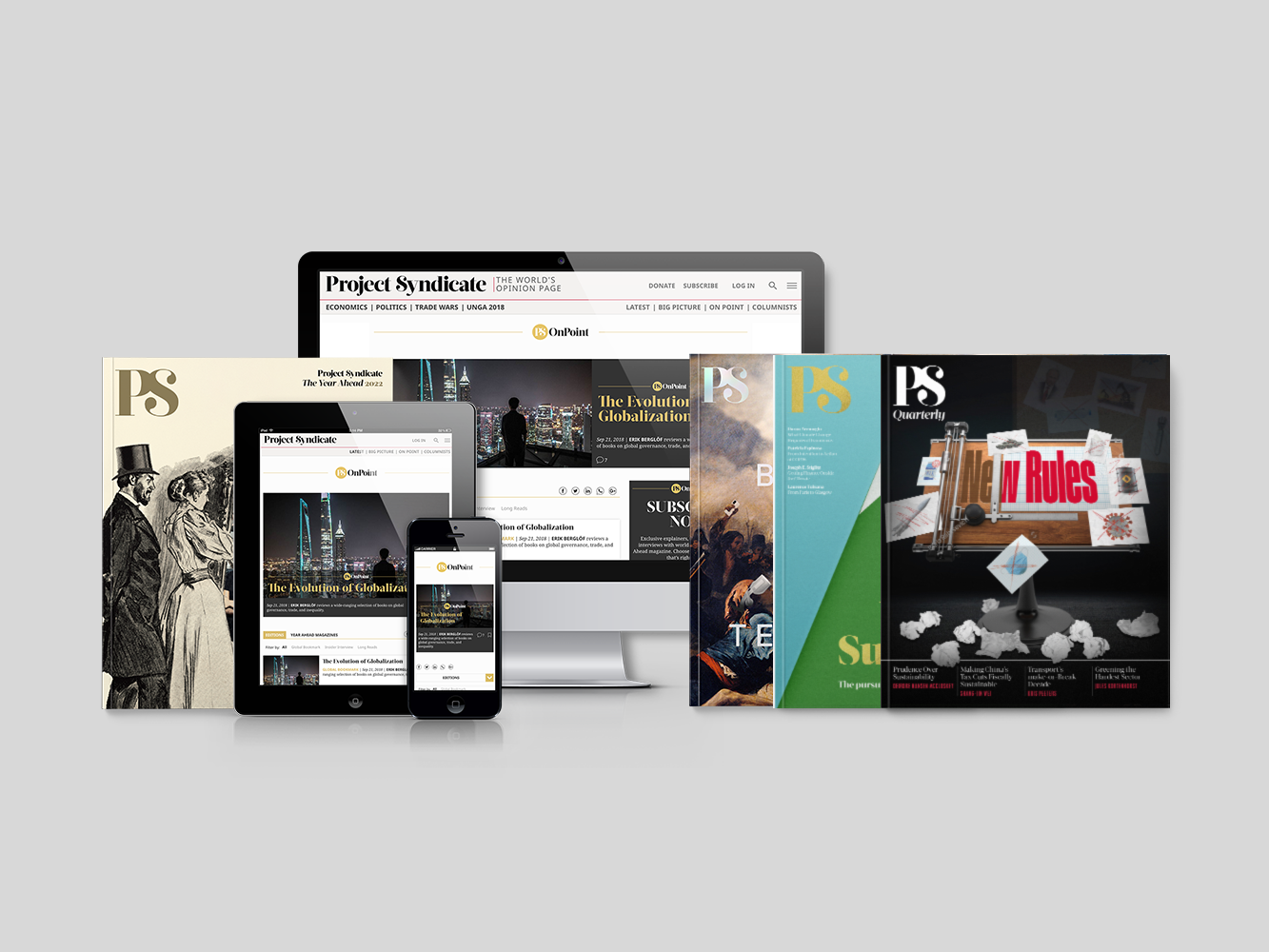
Subscribe to Project Syndicate
Enjoy unlimited access to the ideas and opinions of the world’s leading thinkers, including long reads, book reviews, topical collections, short-form analysis and predictions, and exclusive interviews; every new issue of the PS Quarterly magazine (print and digital); the complete PS archive; and more. Subscribe now to PS Premium.
Subscribe
Through the succession of euro crises that followed Lehman Brothers’ collapse in 2008, financing public spending with the printing press has been the main driver of monetary expansion. Since the summer of 2008, no less than 83% – €5.3 trillion ($5.43 trillion) – of the total overhang of central bank money (relative to GDP, and over the level that had proved sufficient) came from the purchase of government securities.
For a while, these purchases allowed governments to take on more and more debt (in defiance of all the Eurosystem’s debt ceilings) without irritating investors. While that debt stimulated aggregate demand and kept unemployment in check, inflationary secondary effects from the expansion of banks’ credit supply failed to materialize, because the newly circulating money was being hoarded by banks and private individuals.
But conditions have changed. The COVID-19 pandemic has led to stagflation. Lockdowns and quarantine measures have curtailed production and caused supply problems everywhere – and these issues are far from being overcome, especially in China. Meanwhile, Russia’s war in Ukraine and other factors have created opportunistic supply shortages in the fossil-fuel sector. The result has been massive inflation, far dwarfing the effects of the 1970s oil crises.
In a stagflationary environment, government financing with the printing press no longer works, because it merely fuels inflation and social turmoil, especially among middle-class voters who justifiably fear for their savings. Under these conditions, over-indebted states and financial systems’ creditworthiness can be secured only through international fiscal aid programs financed with taxes – not debt. And yet, higher taxation also is certain to face staunch resistance among voters. The TPI can be thought of as one such program, because it leads to redistribution effects between state budgets.
The ECB is thus left with a dilemma. If it wants to continue helping hard-pressed governments by buying their bonds, it can get them the resources they need via predatory inflation at the expense of money holders, or it can get some governments the resources they need at the expense of other governments.
Either way, the free lunch offered by inflation-free money printing is over. In a context of stagflation, a Keynesian demand policy to stimulate economic activity will merely fuel inflation, for which the ECB will rightly be blamed if it keeps buying government bonds. But using the TPI would amount to redistribution between member states, leading to storms of protest and severe legal consequences.
The only other option is to do nothing, which would send capital markets into turmoil. The ECB may be facing its biggest test yet.
.
Analysts take a bite of premium QSR stocks as restaurants hike prices
Dine-in and quick service restaurant (QSR) owners are facing a double whammy of cost pressure. Raw material costs for edible oil, fresh milk, wheat, coffee, vegetables, tea, and sugar have surged up to 60 per cent year-on-year (YoY) owing to sappy supply chains and rupee depreciation/costlier imports.
TO READ THE FULL STORY, SUBSCRIBE NOW NOW AT JUST RS 249 A MONTH.
Key stories on business-standard.com are available to premium subscribers only.
Already a premium subscriber? LOGIN NOW
SUBSCRIBE TO INSIGHTS
MONTHLY
₹
249
Select
ANNUAL
₹
1799
Select
Best Offer
SMART ANNUAL
₹
1799
Opt for auto renewal and save Rs 300
Select
What you get on Business Standard Premium?
![]()

5 ARTICLE PACK
PAY AS YOU GO
₹
150
/for 5 articles
* Terms
- 1. Lorem Ipsum is dummy Text
- 2. Lorem Ipsum is dummy Text
VIEW ALL FAQs
 Dear Reader,
Dear Reader,
Business Standard has always strived hard to provide up-to-date information and commentary on developments that are of interest to you and have wider political and economic implications for the country and the world. Your encouragement and constant feedback on how to improve our offering have only made our resolve and commitment to these ideals stronger. Even during these difficult times arising out of Covid-19, we continue to remain committed to keeping you informed and updated with credible news, authoritative views and incisive commentary on topical issues of relevance.
We, however, have a request.
As we battle the economic impact of the pandemic, we need your support even more, so that we can continue to offer you more quality content. Our subscription model has seen an encouraging response from many of you, who have subscribed to our online content. More subscription to our online content can only help us achieve the goals of offering you even better and more relevant content. We believe in free, fair and credible journalism. Your support through more subscriptions can help us practise the journalism to which we are committed.
Support quality journalism and subscribe to Business Standard.
Digital Editor
First Published: Tue, June 07 2022. 11:15 IST !function(f,b,e,v,n,t,s){if(f.fbq)return;n=f.fbq=function(){n.callMethod?n.callMethod.apply(n,arguments):n.queue.push(arguments)};if(!f._fbq)f._fbq=n;n.push=n;n.loaded=!0;n.version=’2.0′;n.queue=[];t=b.createElement(e);t.async=!0;t.src=v;s=b.getElementsByTagName(e)[0];s.parentNode.insertBefore(t,s)}(window,document,’script’,’https://connect.facebook.net/en_US/fbevents.js’);fbq(‘init’,’550264998751686′);fbq(‘track’,’PageView’); .
BS Number Wise: Taking stock of Indian markets’ valuation premium
Professors Benjamin Graham and David Dodd, two of billionaire Warren Buffet’s gurus, noted in 1934 that stock market investors once required a company’s earnings yield to be higher than prevailing bond yields as stocks were considered riskier than bonds. Investors banked on dividend income then. And this was broadly the equivalent of insisting that you earned more from your dividend than your fixed deposit, because share prices can fall. This approach was already considered old-fashioned when they described it in their seminal work, Security Analysis. Inflation, …
Key stories on business-standard.com are available to premium subscribers only.
Already a premium subscriber? LOGIN NOW

MONTHLY STAR
Business Standard Digital
![]()

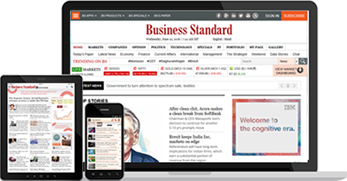
Business Standard Digital Monthly Subscription

Complete access to the premium product

Convenient – Pay as you go

Pay using Amex/Master/VISA Credit Cards and VISA Debit Cards Only

Auto renewed (subject to your card issuer’s permission)

Cancel any time in the future
Note: Subscription will be auto renewed, you may cancel any time in the future without any questions asked.
Requires personal information
What you get?
ON BUSINESS STANDARD DIGITAL
- Unlimited access to all the content on any device through browser or app.
- Exclusive content, features, opinions and comment – hand-picked by our editors, just for you.
- Pick 5 of your favourite companies. Get a daily email with all the news updates on them.
- Track the industry of your choice with a daily newsletter specific to that industry.
- Stay on top of your investments. Track stock prices in your portfolio.
- 18 years of archival data.
NOTE :
- The product is a monthly auto renewal product.
- Cancellation Policy: You can cancel any time in the future without assigning any reasons, but 48 hours prior to your card being charged for renewal.
We do not offer any refunds. - To cancel, communicate from your registered email id and send the email with the cancellation request to [email protected]. Include your contact number for speedy action.
Requests mailed to any other ID will not be acknowledged or actioned upon.

SMART ANNUAL
Business Standard Digital
Subscribe Now and get 12 months Free
![]()


Business Standard Premium Digital – 12 Months + 12 Months Free

Subscribe for 12 months and get 12 months free.

Single Seamless Sign-up to Business Standard Digital

Convenient – Once a year payment

Pay using an instrument of your choice -all Credit and Debit Cards, Net Banking, Payment Wallets, and UPI

Exclusive Invite to select Business Standard events
Note: Subscription will be auto renewed, you may cancel any time in the future without any questions asked.
What you get
ON BUSINESS STANDARD DIGITAL
- Unlimited access to all content on any device through browser or app.
- Exclusive content, features, opinions and comment – hand-picked by our editors, just for you.
- Pick 5 of your favourite companies. Get a daily email with all the news updates on them.
- Track the industry of your choice with a daily newsletter specific to that
industry. - Stay on top of your investments. Track stock prices in your portfolio.
NOTE :
- The monthly duration product is an auto renewal based product. Once subscribed, subject to your card issuer’s permission we will charge your card/ payment instrument each month automatically and renew your subscription.
- In the Annual duration product we offer both an auto renewal based product and a non auto renewal based product.
- We do not Refund.
- No Questions asked Cancellation Policy.
- You can cancel future renewals anytime including immediately upon subscribing but 48 hours before your next renewal date.
- Subject to the above, self cancel by visiting the “Manage My Account“ section after signing in OR Send an email request to [email protected] from your registered email address and by quoting your mobile number.
 Dear Reader,
Dear Reader,
Business Standard has always strived hard to provide up-to-date information and commentary on developments that are of interest to you and have wider political and economic implications for the country and the world. Your encouragement and constant feedback on how to improve our offering have only made our resolve and commitment to these ideals stronger. Even during these difficult times arising out of Covid-19, we continue to remain committed to keeping you informed and updated with credible news, authoritative views and incisive commentary on topical issues of relevance.
We, however, have a request.
As we battle the economic impact of the pandemic, we need your support even more, so that we can continue to offer you more quality content. Our subscription model has seen an encouraging response from many of you, who have subscribed to our online content. More subscription to our online content can only help us achieve the goals of offering you even better and more relevant content. We believe in free, fair and credible journalism. Your support through more subscriptions can help us practise the journalism to which we are committed.
Support quality journalism and subscribe to Business Standard.
Digital Editor
First Published: Wed, June 01 2022. 06:10 IST !function(f,b,e,v,n,t,s){if(f.fbq)return;n=f.fbq=function(){n.callMethod?n.callMethod.apply(n,arguments):n.queue.push(arguments)};if(!f._fbq)f._fbq=n;n.push=n;n.loaded=!0;n.version=’2.0′;n.queue=[];t=b.createElement(e);t.async=!0;t.src=v;s=b.getElementsByTagName(e)[0];s.parentNode.insertBefore(t,s)}(window,document,’script’,’https://connect.facebook.net/en_US/fbevents.js’);fbq(‘init’,’550264998751686′);fbq(‘track’,’PageView’); .


